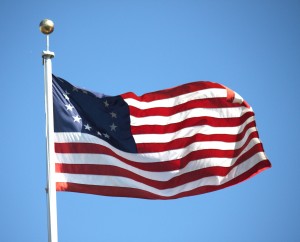
Today is the 5th of July. I hope your celebration of the 4th included ice cream, hot dogs, swimming pools, fireworks and many other common ways we celebrate “Independence Day.” But as we celebrated yesterday, I also noticed that our culture seems far more focused on the three-day weekend celebration than on the liberties we often take for granted. If Rip Van Winkle were to awake again two centuries after his “brief” two-decade nap, what would he think of our current society and its view of freedom? How does it come to this?
 I think this is due in part to our failure to understand and apply the lessons of history. If we were somehow transported back to one of the 13 colonies in 1775, would we notice the indicators of tyranny? If we were standing in the crowd outside the Virginia House of Burgesses when Patrick Henry made his impassioned plea to mobilization, concluding, “Give me liberty or give me death,” would we consider him rash or courageous? Or would we simply nod our heads in agreement, recognizing what really was at stake in the alternative to liberty?
I think this is due in part to our failure to understand and apply the lessons of history. If we were somehow transported back to one of the 13 colonies in 1775, would we notice the indicators of tyranny? If we were standing in the crowd outside the Virginia House of Burgesses when Patrick Henry made his impassioned plea to mobilization, concluding, “Give me liberty or give me death,” would we consider him rash or courageous? Or would we simply nod our heads in agreement, recognizing what really was at stake in the alternative to liberty?
These are the kinds of things we will be taking a closer look at in two history electives offered this fall. One of them, “A Closer Look at the American War for Independence,” will examine both the motivations and the conduct of that war with an eye toward understanding the spirit of the times. The other, “A Closer Look at the Foundations of US Government,” will examine the bases for just government among men and consider the men who helped craft our constitution, including their influences and their arguments. These are geared for students in the rhetoric stage (grades 9-12).
For those in the dialectic or late grammar stage (6-8) we also have two history offerings. “20th Century US History,” which is geared primarily for 6th and 7th graders, is intended to give an overview of America’s growing role in the world during that pivotal time. Some historians have suggested that this was America’s attempt to “export” our form of government and its liberties. We will explore this and other claims. In “Your State History,” students in grades 7-9 will be led through the research and discovery phase as they prepare assignments and presentations on their own state history. This also serves to broaden the horizons of classmates who are likely to be from other parts of the US (or even of the world).
History is the study of God’s providence worked out in time and space. History students at Wilson Hill Academy will grow in their appreciation for the ideas and historical context surrounding events of the past, and be better able to apply those historical lessons to the present.